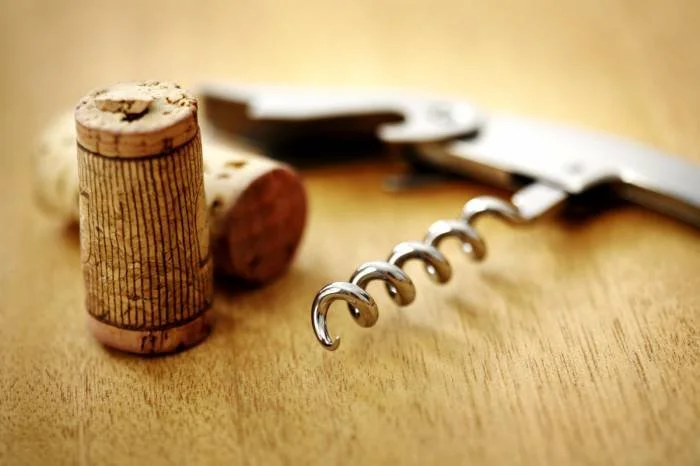US Grants Cork Exemption from EU Tariffs, Easing Pressure on Wine Industry
Original article by vinetur.com
Decision follows lobbying by trade groups and diplomats, ensuring continued access to essential Portuguese cork for American producers
Oregon-based wine industry advocate Patrick Spencer is celebrating a significant victory after the United States granted cork an exemption from new tariffs on European Union products. The decision, which took effect September 1, followed months of lobbying by Portuguese diplomats and U.S. trade groups who argued that cork is an essential natural product with no domestic substitute.
Cork, harvested from the bark of cork oak trees, is a critical component for the wine industry. The Mediterranean basin, and Portugal in particular, dominates global cork production. Portugal supplies about half of the world’s cork, and the U.S. is its second-largest market after France. In 2023, the U.S. imported $241 million worth of cork from Portugal, with more than 70% used as stoppers for wine, spirits, olive oil, honey, and other liquids.
The exemption comes as part of a broader trade agreement between the U.S. and the EU that imposed a 15% tariff on most European goods but carved out certain items deemed “unavailable natural products.” Alongside cork, airplanes and generic pharmaceuticals also received exemptions. The move was especially important for Portugal’s economy and for American winemakers who rely on high-quality cork stoppers.
Patrick Spencer, executive director of the Natural Cork Council based in Salem, Oregon, traveled to Washington in June to meet with U.S. trade officials. He explained the unique origins and uses of cork and pressed for its exclusion from tariffs. The Wine Institute, representing California vintners, also advocated for the exemption.
Spencer described his reaction to the news as one of relief and excitement. “It was a great day in our neighborhood,” he said. The announcement came in August when a summary of the U.S.-EU agreement specifically mentioned cork.
The future of tariffs on other natural products remains uncertain. The Department of Commerce and the White House have not clarified whether additional exemptions will be granted or if current tariffs will remain in place long-term. A recent U.S. appeals court ruling questioned the legality of former President Donald Trump’s sweeping tariffs but left them in effect pending further appeal.
Commerce Secretary Howard Lutnick suggested in July that other natural products such as mangoes or cocoa could also be considered for tariff exemptions in future agreements.
Despite California’s Mediterranean-like climate, the United States has never developed a significant cork industry. During World War II, there was an attempt to cultivate cork oaks in California, but it was abandoned after the war ended. Today, about 500 trees from that era remain at the University of California, Davis campus. Cork trees require 25 years before their first harvestable bark can be stripped, and even then, initial yields are often low quality. Subsequent harvests occur every nine years.
António Amorim, chairman and CEO of Corticeira Amorim—one of Portugal’s largest cork companies—explained that Americans have not shown patience for such long-term agricultural investments. Cork harvesting is also highly specialized; improper cutting can kill a tree. As a result, cork harvesters are among Europe’s highest-paid agricultural workers.
At Amorim’s Herdade de Rio Frio farm southeast of Lisbon, crews continue to harvest cork by hand as they have for over two centuries. Workers carefully remove slabs of bark without damaging the trees, which can live for more than a hundred years and withstand harsh droughts and heat.
Cork’s sustainability and biodegradability have contributed to its resurgence among American winemakers after years of experimentation with alternative closures like aluminum screw caps and plastic stoppers. In 2010, just over half of premium U.S. wines used cork; by 2022 that figure had risen to nearly two-thirds.
Cork taint—a problem caused by a fungus that imparts off-flavors to wine—drove many producers away from natural cork in the 1990s. Advances in quality control have since reduced this risk significantly. Meanwhile, screw caps have improved technologically but are generally preferred for wines meant to be consumed young rather than aged.
Andrew Waterhouse, director of the Robert Mondavi Institute at UC Davis, noted that traditionalists still associate proper wine aging with bottles sealed by natural cork stored in cool cellars.
Beyond wine stoppers, cork has found uses in aerospace as thermal protection on rockets and as infill for sports fields or shock-absorbing material in airport runways.
For now, both American winemakers and Portuguese producers are relieved that their vital supply chain remains uninterrupted by tariffs—a result achieved through persistent advocacy on both sides of the Atlantic.

